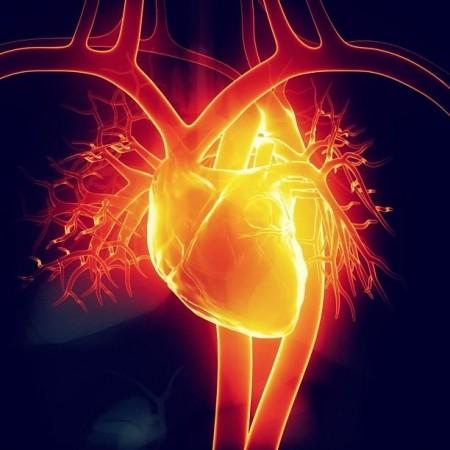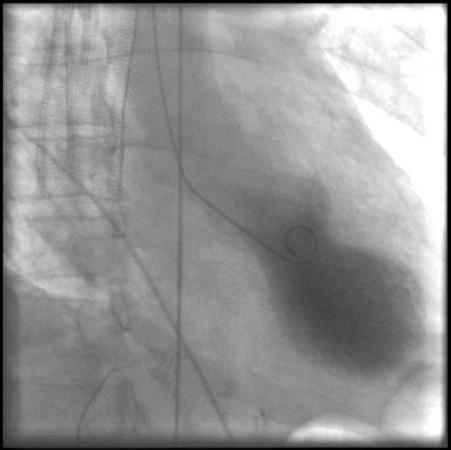It is said that "Stress is a killer". The statement has truth to it as stress is known to contribute to or give rise to several ailments such as diabetes, depression, gastrointestinal problems, heart disease, and obesity, among others. However, it can cause another lesser-known condition—'broken heart' syndrome. Now, a new study has stated that the frequency of diagnoses of the condition among women, particularly among middle-aged and older women, is increasing.
According to researchers from Smidt Heart Institute at Cedars-Sinai Medical Center, there has been an increased incidence in the diagnoses of the rare condition which is also known as Takotsubo cardiomyopathy. It was found that the rate of diagnoses was up to ten times higher among middle-aged and older women (than men of any age or younger women). The findings of the research were published in the Journal of the American Heart Association.
"Although the global COVID-19 pandemic has posed many challenges and stressors for women, our research suggests the increase in Takotsubo diagnoses was rising well before the public health outbreak. This study further validates the vital role the heart-brain connection plays in overall health, especially for women," said Dr. Susan Cheng, senior author of the study, in a statement.
'Breaking' One's Heart

Takotsubo cardiomyopathy, which is also known as Takotsubo syndrome, is a temporary heart condition where the heart muscle becomes suddenly weakened or stunned. It is mostly triggered by extremely emotional and stressful situations. However, it can also be brought on by surgery or a critical illness such as serious infections.
When someone experiences this condition, the ability of the heart to effectively pump blood is affected. This is because the main pumping chamber of the heart, the left ventricle, changes shape, and resembles a 'Tako -Tsubo pot' used to catch octopuses in Japan. While this occurs, the other parts of the heart function normally or have strained contractions.
Symptoms of Takotsubo cardiomyopathy can be very similar to a heart attack and are characterized by shortness of breath and chest pain. Blood tests, coronary angiogram, electrocardiogram (ECG), and echocardiogram can help in the diagnosis of the condition. Most people recover within a few days and medications may be administered to reduce damage to the heart.

The exact reason for broken heart syndrome has remained unclear. Scientists continue attempting to determine the interaction between emotional signals within the brain and the cardiac muscle. One of the prevalent theories to explain the phenomenon is that exposure to an emotionally traumatic event leads to a massive surge in the levels of adrenaline that can be harmful to the heart.
Increasing Cases among Women
Researchers have known the when it comes to developing Takotsubo syndrome, women are more prone to it than men. However, through the current research, the authors aimed to ascertain whether age-based sex differences and case rates might change over time.
For the study, the team collected data from 135,463 documented cases of Takotsubo cardiomyopathy—both men and women—between 2006 and 2017 in the US. They discovered that there was a steady annual increase in cases among both sexes. However, at 83.3 percent, most cases were found in women, particularly those above the age of 50.

The study also found that the growth in diagnoses has been six to ten times more rapid for women between the ages of 50 to 74; more than any other demographic group. It was observed that for every additional diagnosis of Takotsubo among men from all age groups or younger women, there were 10 additional diagnoses in middle-aged women, and six additional cases for older women.
While the findings of the research indicate that the condition has become more common, they also suggest that the prevalence of cases had been steadily rising much before the onset of the COVID-19 pandemic.
Need for Further Investigation
Pointing towards age-related biological changes, Dr. Cheng explained that as women age, the manner in which their brain and the nervous system respond to various stressors begins to vary. "There is likely a tipping point, just beyond midlife, where an excess response to stress can impact the heart. Women in this situation are at especially affected, and the risk seems to be increasing," she said.

So what direction is the research heading in next? The team is examining the long-term impact of Takotsubo syndrome, molecular markers signifying its risk, and the contributing factors that may be leading to the rise in the number of cases. While the link between heart disease risk and stress is understood to be crucial by doctors, there is much to be learnt.
"This particular study helps to clarify that women of a certain age range are disproportionately at higher risk for stress cardiomyopathy, and that the risk is increasing. The upswing could be due to changes in susceptibility, the environment, or both. More work is needed to unravel the underlying disease drivers in Takotsubo condition and other women-dominated conditions," concluded Dr. Christine M. Albert, chair of the Department of Cardiology at the Smidt Heart Institute.















